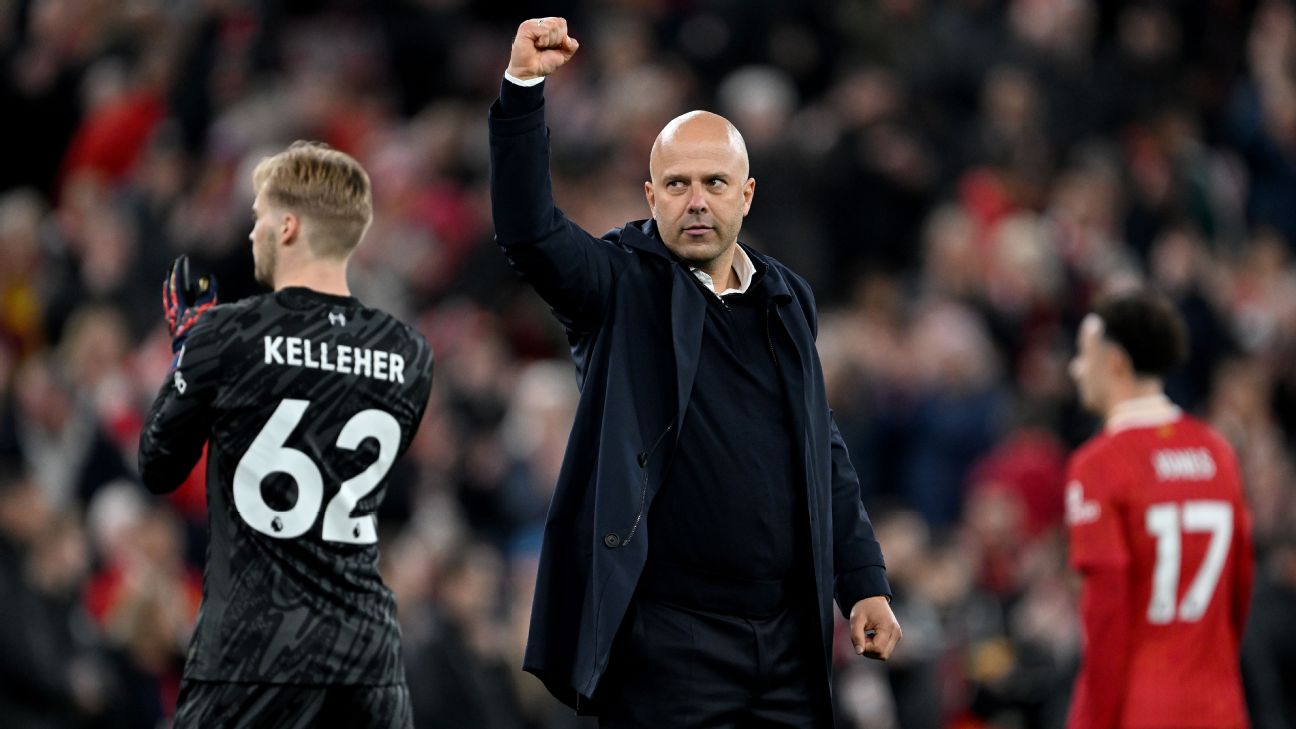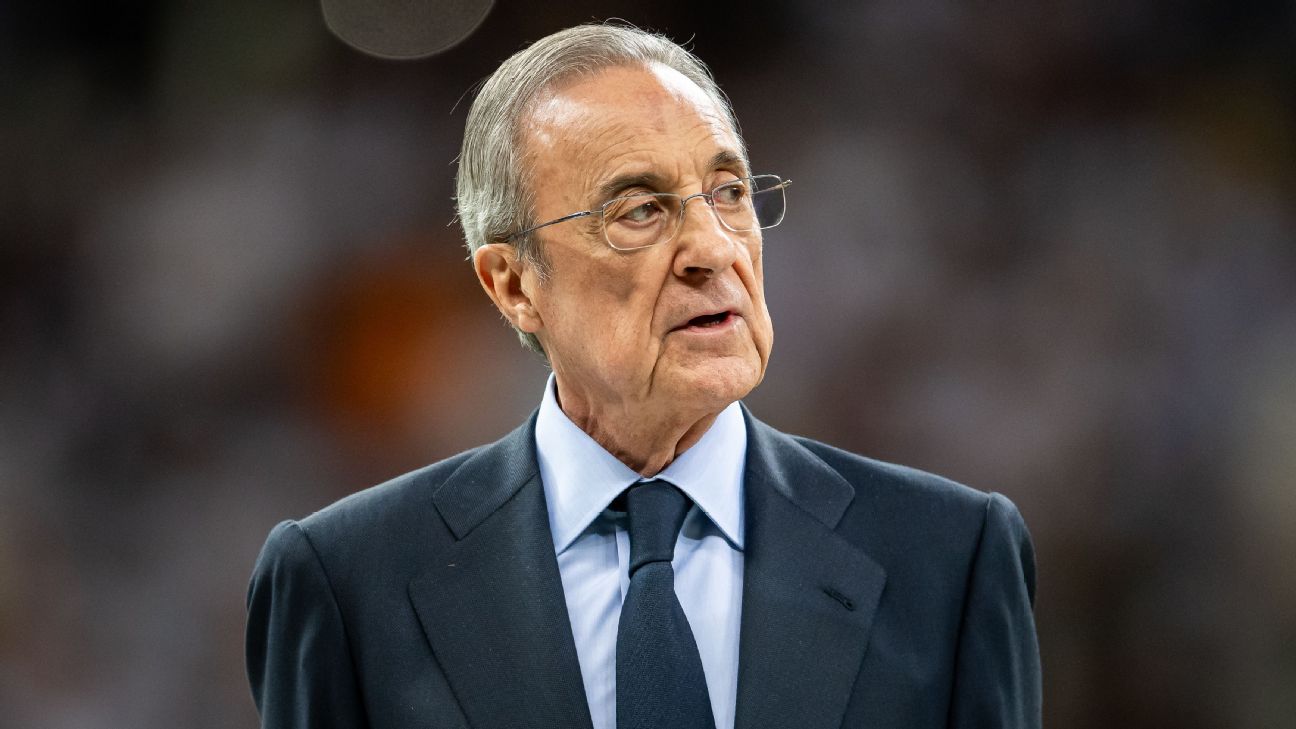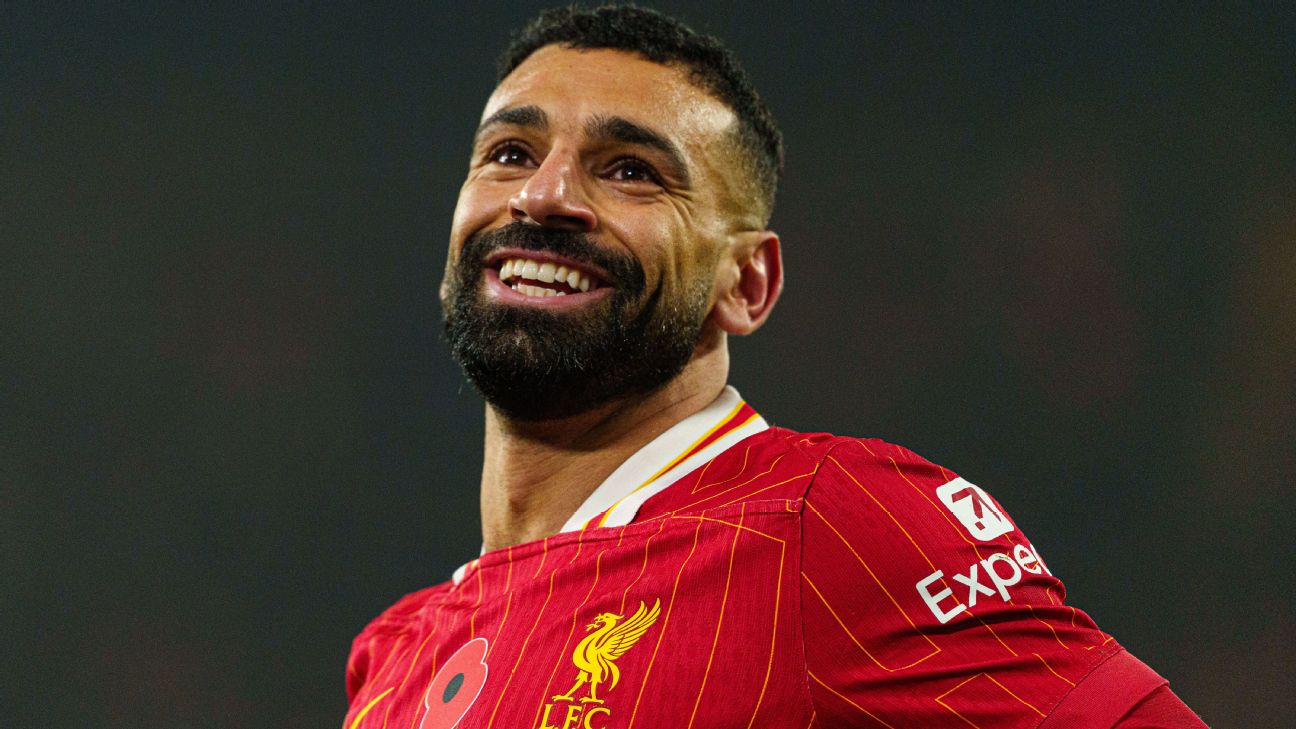Every good analyst knows this: Wait 10 games until you start making any declarations about anything that happens in the Premier League.
Many different analyses have found that past performance starts to meaningfully predict future performance only once we get right around the 10-game mark. You don’t even need fancy underlying numbers. A 2019 paper published in the journal PLOS One found that 77% of the variance in the final league table is explained by where each team was just 10 games into the season. Put another way, the league table shifts by only about 23% over the final 28 matches.
That’s great news for Liverpool, Nottingham Forest and Leicester City. And it’s a big “Yikes!” for Manchester United, Wolverhampton Wanderers, Southampton and Ipswich.
But we can, of course, go deeper than just points. Plus, much of the reason for what these researchers found is that, well, 10 games accounts for more than a quarter of your full-season point total. Unsurprisingly, you’re likely to finish higher or lower in the table when you win or don’t win a lot of points in your first 10 matches.
So, with the Premier League hitting the 10-game mark last weekend, what have we learned, and what might that tell us about how the rest of the season might turn out? Here are some predictions, accompanied by how confident I am in each one on a scale of low, medium or high.
 PREDICTION: Liverpool will win the league
PREDICTION: Liverpool will win the league
If you’ve read anything I’ve written over the past few months, you’ve likely noticed my preference for a statistic that combines expected goals (70%) and goals (30%) to represent team strength. I like this because it’s intuitive — and someone much smarter than me has backed it up with research.
That research comes from Ben Torvaney, who used to work for AC Milan but is now a member of Ludonautics, the consultancy created by Liverpool’s former head of research, Ian Graham. And the intuition comes from, well, watching thousands of soccer games.
Steve Nicol assesses the Premier League title race between Liverpool, Man City and Arsenal.
Most of a team’s quality comes from its ability to create and limit the quantity and quality of chances, but that’s not all of it. We know that teams aren’t always playing to optimize their expected goals (xG) totals, we know that some players are better at finishing than others, and we also know that xG models aren’t perfect. By adding in a 30% chunk for goals, Torvaney found that he was better able to predict future results.
And so, the reason for this prediction is twofold: (1) Liverpool are currently in first place, and (2) Liverpool have the best adjusted goal rating — if you have a better suggestion for a name, I’m all ears — through 10 matches.
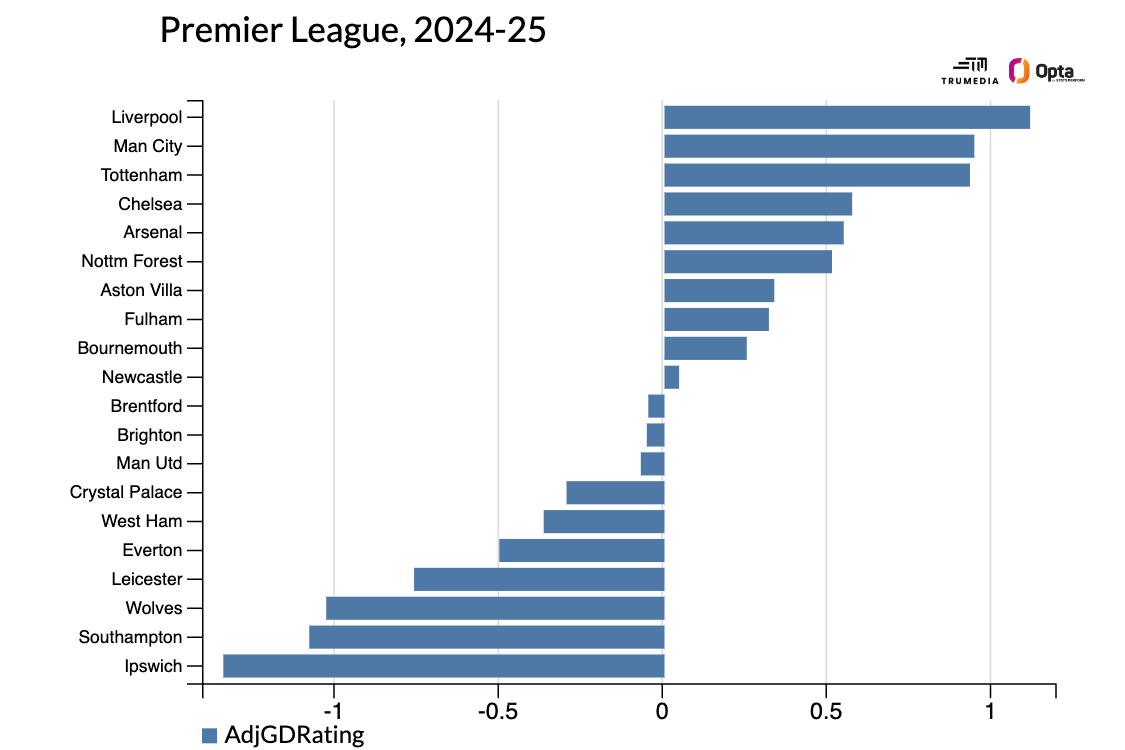
Banking the most points and playing like the best team in the league usually makes you the favorite.
CONFIDENCE LEVEL: Low
Why I wouldn’t be willing to stake a lot of equity on Liverpool winning the league: Their adjusted goal rating is only the 25th-best mark since 2009 through 10 matches. In other words, this really isn’t the version of the Premier League we’ve grown used to over the past half-decade, where one, two or sometimes three teams are way better than everyone else. The top of the league is weaker than it’s been since Leicester City won the league in 2016.
 PREDICTION: Man City’s Erling Haaland is going to win the Golden Boot
PREDICTION: Man City’s Erling Haaland is going to win the Golden Boot
Even with the Manchester City team degrading around him, Erling Haaland is leading the Premier League in goals, non-penalty goals, expected goals, non-penalty expected goals and shots.
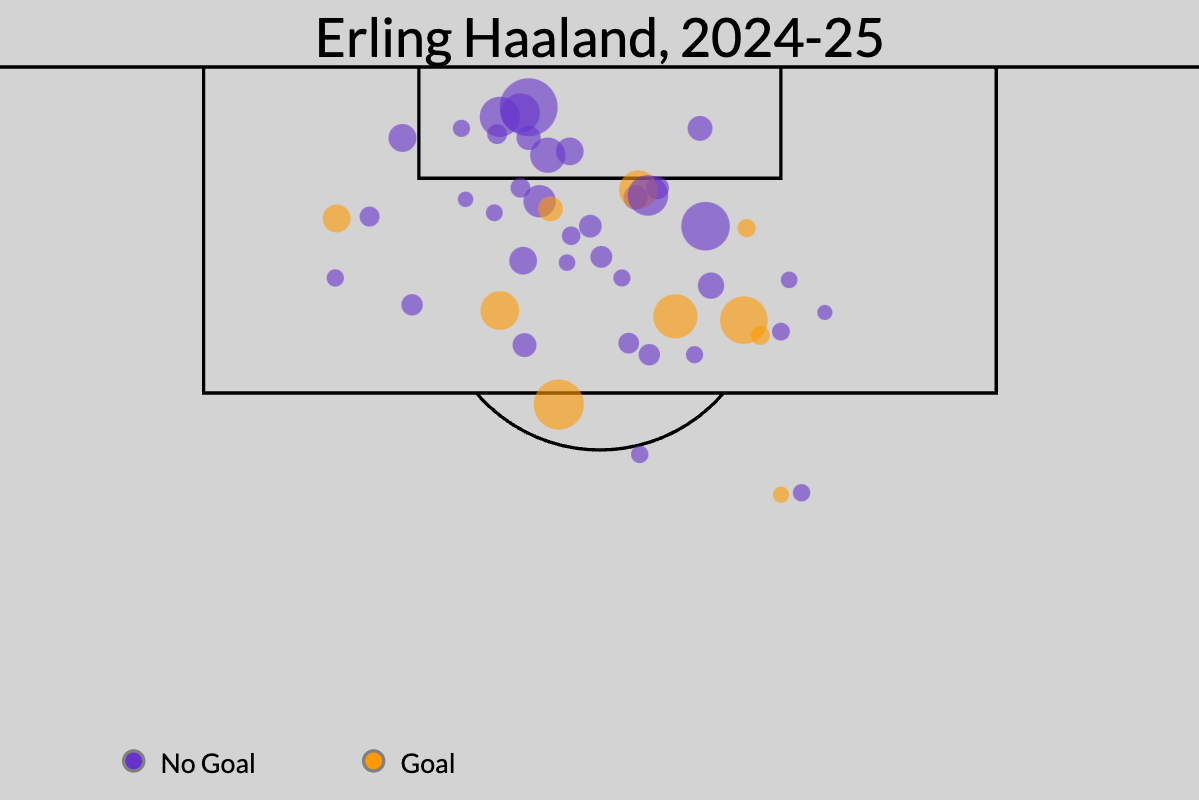
If you look at the trend lines for City’s attack and defense, both took a sharp decline pretty much exactly when Rodri went down with a season-ending injury in late September. My guess is that Pep Guardiola finds a way to reverse some of the recent decline we’ve seen — when has he not? — and the team also greatly benefits from the return of Kevin De Bruyne.
CONFIDENCE LEVEL: High
If someone else couldn’t build up a lead on Haaland after the way this season started, it’s really hard to see anyone catching him over the final 28 games.
Frank Leboeuf isn’t ready to count Manchester City out of the Premier League title race despite their 32-game unbeaten run coming to an end.
PREDICTION: Someone other than Erling Haaland will lead the league in combined non-penalty goals+assists
Yes, that does sound incredibly convoluted, but it’s the purest representation of attacking output. OK, fine, it’s not. The purest representation would be non-penalty goals combined with expected assists. This way, we’d award players for the goals they scored beyond the penalty spot and the quality of the chances they created for their teammates. But I’m already straying far enough outside the mainstream here that I’m just going to stick with non-penalty goals+assists for this prediction.
Last season, Phil Foden beat Haaland, mainly on the back of a white-hot finishing run that saw him score 19 non-penalty goals on 10.3 xG. Well, Foden is no longer even a guaranteed starter for Manchester City, and I would never predict that kind of a shooting run for anyone because I am not an all-knowing deity. Except, it’s not like I have to channel my third eye to make this prediction.
There are already a few players tied with, slightly below or even above Haaland in the npG+A race. Cole Palmer has 11 to Haaland’s 10, while Mohamed Salah and Bukayo Saka are both tied with him on 10, and Nicolas Jackson is only one back with nine. On top of that, these four players have emerged alongside Haaland as something like the Premier League’s Big Five: the quintet of attackers who have played at a significantly higher level than everybody else.
They’re the only five guys with at least nine non-penalty goals+assists, and they’re the only five guys with at least 6.0 expected goals and expected assists. In other words, these four other players have both banked a lot of goals and assists already, and they’re taking shots and producing chances at a high level. My guess is at least one of them goes on a Foden-type tear, either by converting his own chances or having his chances created converted at an especially high rate over the rest of the season.
CONFIDENCE LEVEL: Medium
Most strikers who get as many touches in the box as Haaland does end up with pretty good assist production because they’re frequently in position to play a simple pass that leads to a great chance for a teammate. Through 10 games, though, Haaland has created only five chances for his teammates — a roughly 50% decline from his career rate.
 PREDICTION: Aston Villa won’t finish top four
PREDICTION: Aston Villa won’t finish top four
If we take these adjusted ratings and separate them out into offense and defense, Aston Villa rank seventh in offense:
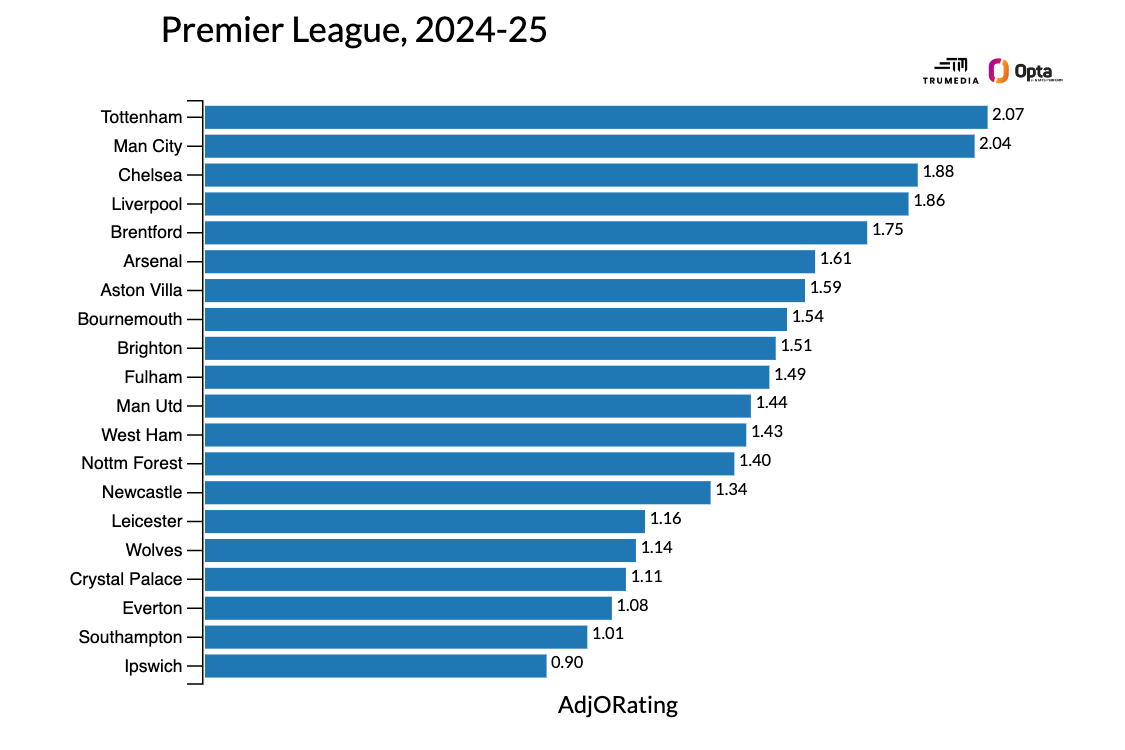
… and seventh in defense:
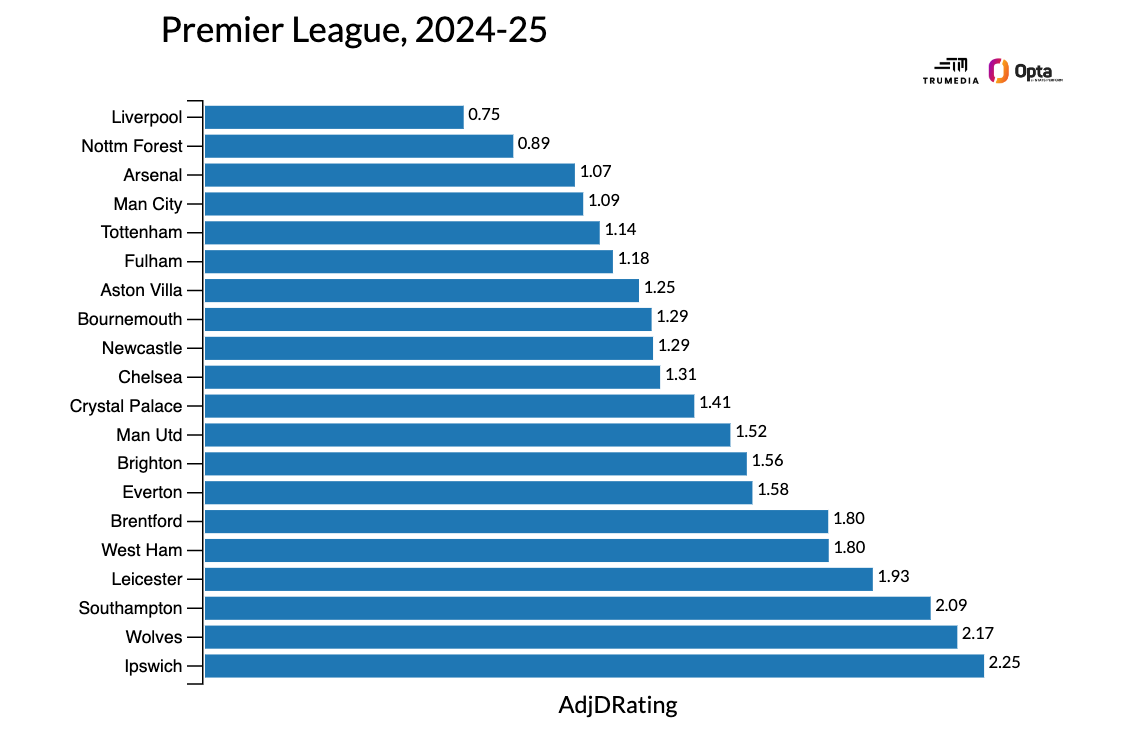
Even if we go just by goal differential, they’re only plus-2 through 10 games. That’s eighth best in the league:
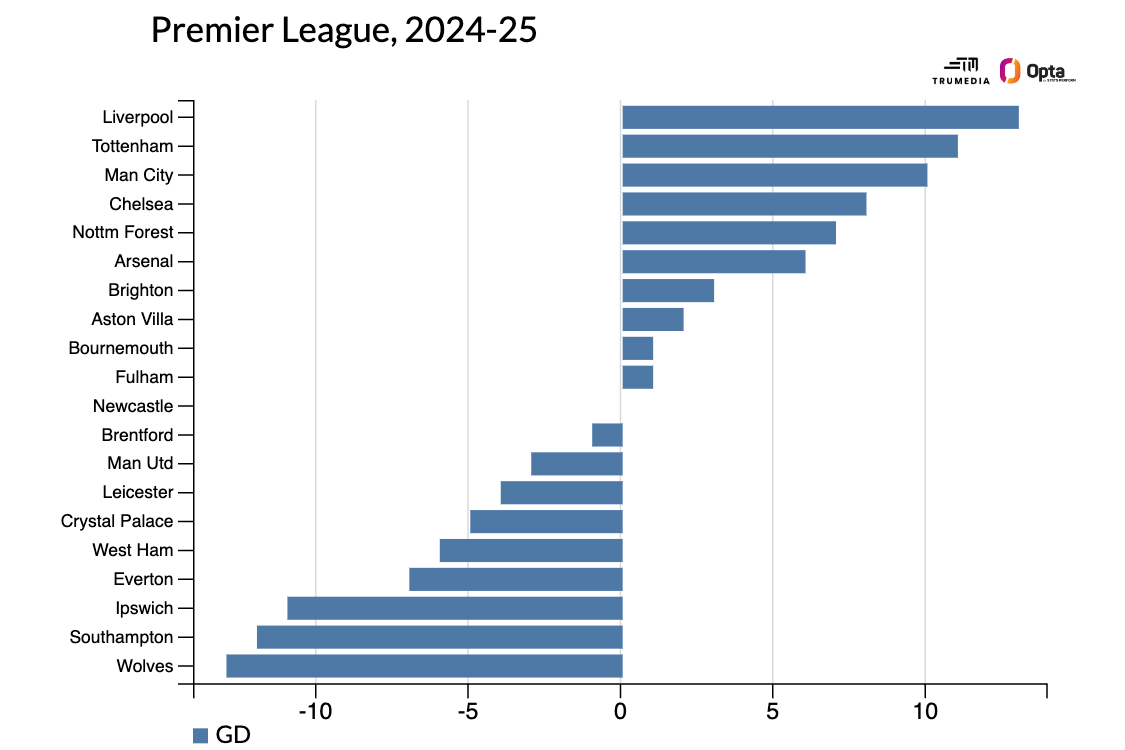
Despite all of that, they’re still tied for fourth on points with Arsenal and Chelsea. Both sides have played better than Villa so far this season — better goal differential on the same point total, much better underlying numbers — so I don’t really see a world where I’d expect Unai Emery’s team to outperform either side from here on out. It could happen, of course, but I’m not going to predict it.
CONFIDENCE LEVEL: Medium
The other big issue for Villa: they still haven’t played Liverpool, Chelsea, Manchester City or even Nottingham Forest. Based on the Opta power rating for their opponents, only Everton have played an easier schedule so far this season.
 PREDICTION: Arsenal will re-enter the title race at some point
PREDICTION: Arsenal will re-enter the title race at some point
On the one hand, the Gunners were supposed to be in the title race. Instead, they’re currently in fifth place (via goal differential), and their underlying numbers don’t suggest they should be much better. They’ve won one point from their past three matches, they’ve got Chelsea this weekend, and they’re already seven points back of first-place Liverpool.
On the other hand, Martin Ødegaard has barely played; a number of other key players have missed time due to suspensions (William Saliba), injury (Bukayo Saka) or both (Declan Rice); and they’ve also played a large chunk of three matches down a man.
Gab Marcotti and Julien Laurens debate if Arsenal made a mistake in the transfer window by not signing an alternative option to forward Kai Havertz.
If we look only at minutes played at even strength, the Gunners are second behind only Liverpool in goal differential, expected goal differential and adjusted goal rating.
Given that Ødegaard, arguably the team’s most important player since he’s pretty much its only creative passer, just returned to training and it’s unlikely Arsenal continue to get an early red card in every third game they play, there are a bunch of reasons to expect this team to bounce back.
CONFIDENCE LEVEL: Medium
Seven points is a big gap to Liverpool — as is the five to City in second — but I don’t think either side is likely to run away and hide at the top of the table like both have done in the past. Both Liverpool and City are more likely winners than Arsenal at this point. Still, I’d be surprised if the Gunners don’t at least start to close down the gap at some point.
 PREDICTION: Bruno Fernandes & Co. will start scoring more goals — and Rúben Amorim will get all of the credit
PREDICTION: Bruno Fernandes & Co. will start scoring more goals — and Rúben Amorim will get all of the credit
Most teams fire their managers only as a last resort — especially Manchester United, which signed Erik ten Hag to a contract extension over the summer while almost everyone outside of the club expected him to get fired. And so, the teams that fire their managers are usually the teams that are both playing poorly and getting unlucky. Perhaps “luck” is the wrong word, but these are teams that seem even worse than they are because they’re on an unsustainably bad run of finishing or facing up against a succession of opponents that can’t stop missing.
Through 10 games, United have scored with 6% of their shots, worse than every team other than Crystal Palace. The league average is 10%. All in all, they’ve scored eight non-penalty goals from 140 shots worth 15.8 xG. The gap between their goals and expected goals is the largest, in the wrong direction, among every team in Europe’s Big Five leagues.
The biggest culprit is the captain, Bruno Fernandes, who has zero non-penalty goals from 31 shots worth 3.0 xG. That, again, is the biggest negative gap for any player in Europe’s Big Five leagues:
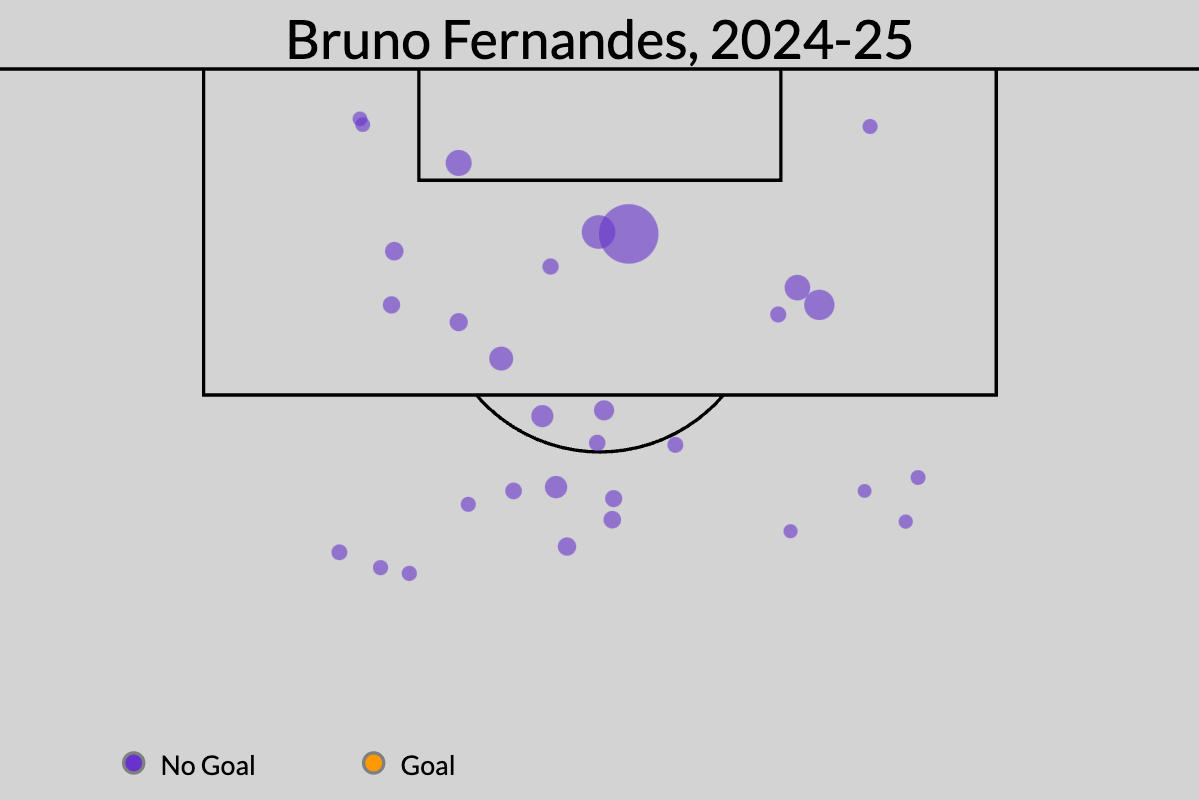
Since the 2017-18 season with Sporting CP, Bruno had overperformed his xG by nearly eight goals coming into this season. It’s quite unlikely that he suddenly has become the worst finisher in the world. The goals will come.
CONFIDENCE LEVEL: High
I’ve seen this happen enough times to stake a lot of confidence on it. United’s attacking performance might improve because of changes made by new manager Rúben Amorim, but it’s also going to improve because the ball was always likely to start going into the net more than it had. Outside of Bruno, Alejandro Garnacho and Joshua Zirkzee have combined for three goals from 6.1 xG.
 PREDICTION: Wolves won’t get relegated
PREDICTION: Wolves won’t get relegated
It seems quite likely that both Southampton and Ipswich Town will go right back down. By the numbers we’ve been referring to today, they’re the two worst teams in the league, and they’re both already in the relegation zone. Per ESPN BET’s odds, they’re both significantly more likely to be relegated than not.
Of course, Wolverhampton sit below both of them in the standings. They haven’t won a match. They have only three points. I put their manager dead last in my rankings of job security. And they rank in the bottom three of that powerfully predictive adjusted goal rating.
But they’re 18th in that metric, rather than last — and that’s despite playing a truly brutal schedule. If you just add up the adjusted goal rating of each team’s opponents, Wolves have played the hardest fixtures in the league, by far. They’ve been on the road to Arsenal, City, Forest, Villa and Brighton & Hove Albion
They’ve been somewhat unfortunate to grab only three points from those matches, too. Opta’s model says their performances (as measured by xG created and conceded) would normally be worth around eight points. Leicester, according to that same model, have produced almost equal performances to Wolves — and they still haven’t played Liverpool, Manchester City or Chelsea.
Given all of that, I feel confident Wolves will be a better team than Leicester from here on out.
CONFIDENCE LEVEL: Low
Seven points is still a lot of points, especially at the bottom of the table, where teams are, you know, typically not winning many points. Leicester seem due for a downturn and Wolves an upturn, but will it be enough to make up the same size gap as the one between Liverpool and Arsenal at the top of the table?
